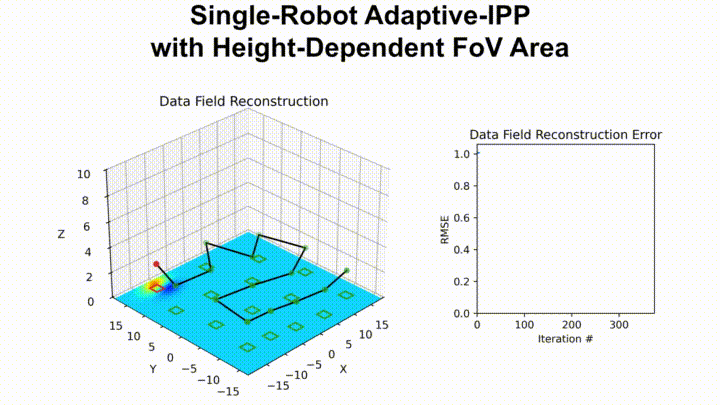Fully Differentiable Adaptive Informative Path Planning

Abstract
Autonomous robots can survey and monitor large environments. However, these robots often have limited computational and power resources, making it crucial to develop an efficient and adaptive informative path planning (IPP) algorithm. Such an algorithm must quickly adapt to environmental data to maximize the information collected while accommodating path constraints, such as distance budgets and boundary limitations. \nCurrent approaches to this problem often rely on maximizing mutual information using methods such as greedy algorithms, Bayesian optimization, and genetic algorithms. These methods can be slow and do not scale well to large or 3D environments. We present an adaptive IPP approach that is fully differentiable, significantly faster than previous methods, and scalable to 3D spaces. Our approach also supports continuous sensing robots, which collect data continuously along the entire path, by leveraging streaming sparse Gaussian processes.\nBenchmark results on two real-world datasets demonstrate that our approach yields solutions that are on par with or better than baseline methods while being up to two orders of magnitude faster. Additionally, we showcase our adaptive IPP approach in a 3D space using a system-on-chip embedded computer with minimal computational resources. Our code is available in the SGP-Tools Python library, complete with extensive documentation, and includes a companion ROS2 package for deployment on ArduPilot-based robots.
Type
Publication
Under Review